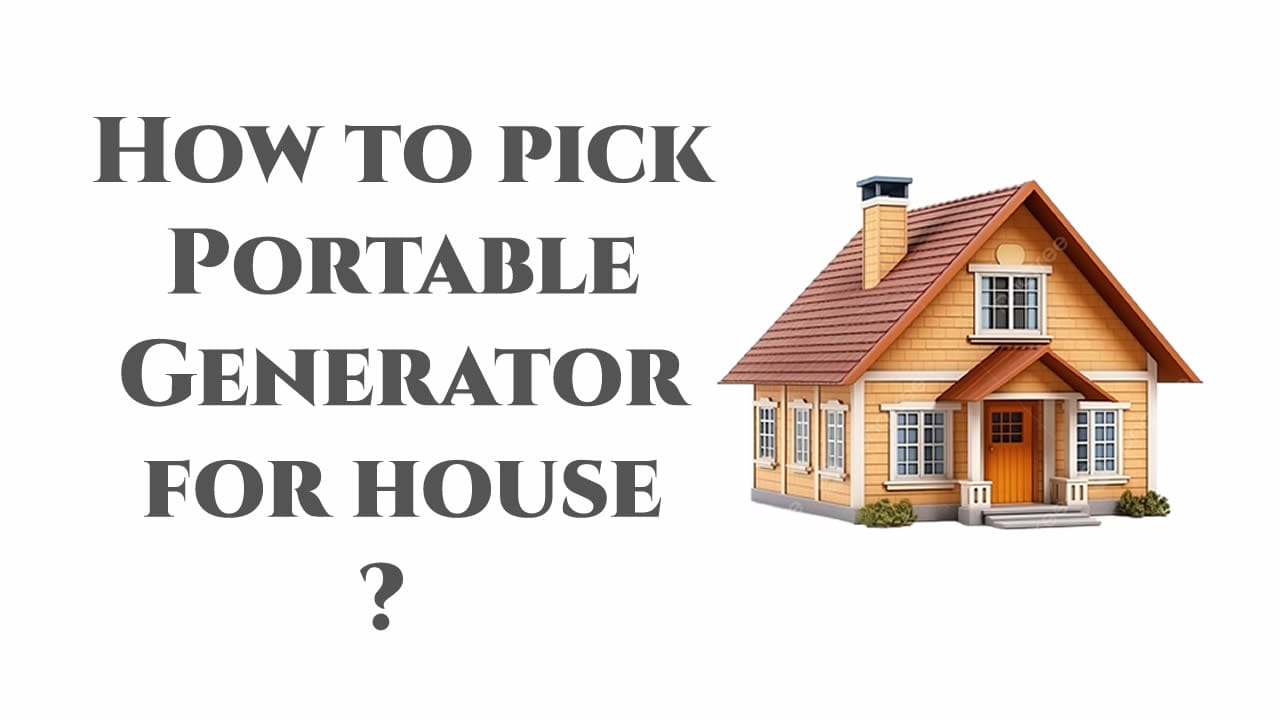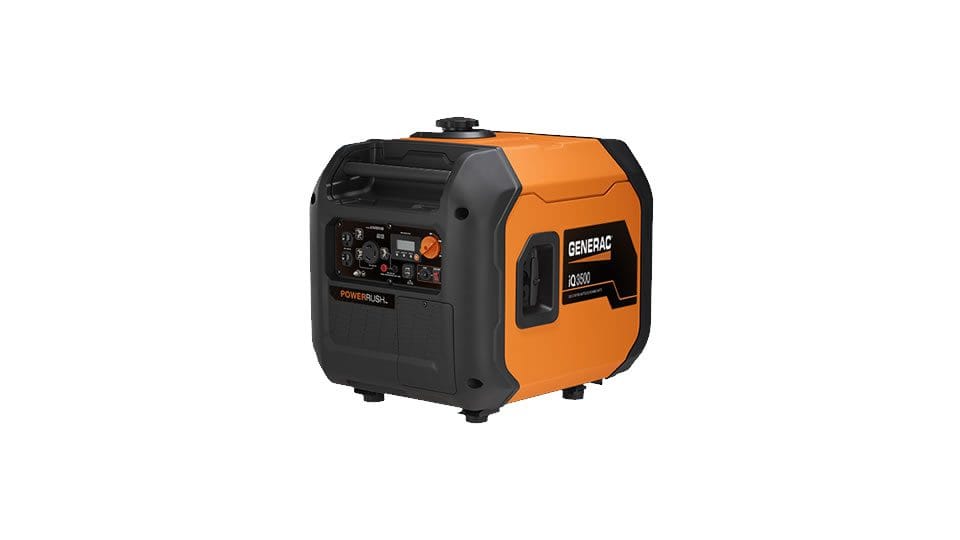Which Is The Best Portable Generator for House
Power outages can be an inconvenience, but the right portable generator can keep your home running smoothly. Whether it’s powering essential appliances during a storm or giving you peace of mind during an unexpected blackout, finding the best portable generator for house use is key. With so many options available, the challenge is narrowing down the one that suits your needs perfectly. In this guide, we’ll explore what makes a generator stand out and how to pick the one that’s just right for your home.
Life without electricity is unimaginable, yet power outages can happen when we least expect them. That’s where a portable generator steps in, acting as a lifesaver for your home’s energy needs. But not all generators are created equal, and choosing the best portable generator for house use can be tricky. From fuel efficiency to wattage capacity, there’s a lot to consider. Let’s dive in and simplify the process of finding your home’s ideal power backup solution.
When the lights go out, having a reliable portable generator can turn chaos into calm. The best portable generator for house use isn’t just about keeping the lights on—it’s about ensuring your comfort and safety during outages. With a variety of features and specifications to choose from, how do you determine the perfect fit for your home? Don’t worry; this guide will walk you through everything you need to know to make an informed and confident decision.
Choosing the Right Wattage
When it comes to picking the right portable generator for house use, wattage is the magic number. It’s like finding the perfect balance between your favorite playlist’s volume and your neighbors’ patience—it has to be just right. Choosing the correct wattage isn’t rocket science, but it does take a little planning and understanding of your home’s needs. Here’s how you can get it spot on.
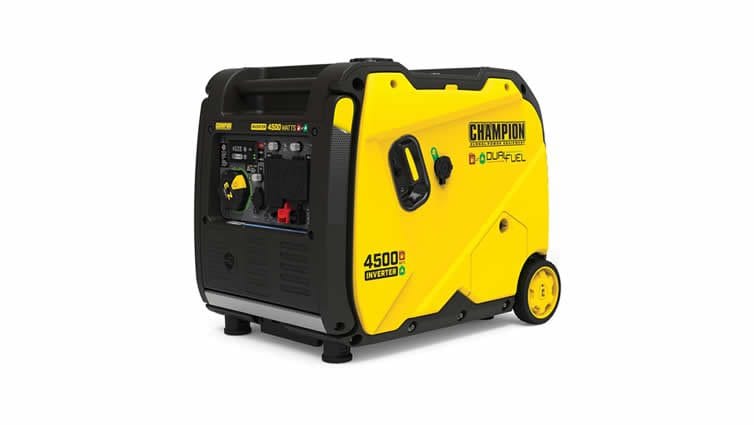
Understand Your Power Priorities
First things first—make a list of essential appliances you’d need to run during a power outage. Think refrigerator, lights, maybe your Wi-Fi (because let’s face it, no internet feels worse than no electricity). Each appliance comes with a wattage rating, usually listed on the device or in its manual. Add up these wattages, and you’ll have a rough idea of your baseline power needs.
Don’t forget about starting wattage versus running wattage. Some appliances, like air conditioners or pumps, require a higher wattage to start but settle into a lower wattage while running. Knowing both figures ensures your generator can handle the initial power surge without breaking a sweat—or blowing a fuse.
Avoid Overloading Your Generator
Nobody likes a drama queen, especially when it’s your generator throwing tantrums because it’s overloaded. Overloading isn’t just bad for your generator; it can also damage the appliances you’re powering. Aim for a generator with a wattage capacity 20–30% higher than your calculated needs. This buffer ensures you won’t max out the generator’s capacity, giving you peace of mind and a smooth power supply.
For example, if your essential appliances add up to 4,000 watts, consider a generator with at least 5,000 watts. This extra capacity also comes in handy if you decide to plug in an extra gadget or two—like a coffee maker for that much-needed caffeine boost during a blackout.
Match Your Lifestyle
Your generator should fit your lifestyle, not the other way around. If you’re someone who likes to keep things minimal, a smaller generator with basic wattage might be your go-to option. On the flip side, if you want your portable generator for house use to power not just essentials but also a few extras like a television or electric grill, you’ll need more wattage.
Consider the length of outages in your area, too. For longer blackouts, you might want to power additional appliances like space heaters or a deep freezer. Knowing what’s most important to you helps in choosing a generator that suits your specific needs.
Plan for Growth
One thing you’ll want to keep in mind is future-proofing your purchase. If you’re planning to add more gadgets or appliances to your home setup, choose a generator with a little extra wattage. Upgrading later can be more costly than simply buying a generator with a higher capacity now.
Generators are like friends—better to have one that can do more than you need than one that flakes out when you’re in a pinch. A little foresight goes a long way, especially when you’re investing in something meant to be your reliable backup during tough times.
Test Your Setup
Here’s a pro tip: don’t wait for an actual blackout to test your generator’s wattage capability. Once you’ve chosen the right portable generator for house use, run a simulation. Plug in the appliances you plan to use during an outage and check how well the generator handles the load.
Testing gives you a clear picture of what works and what doesn’t. Plus, it helps you fine-tune your appliance list or adjust your wattage expectations. It’s a small step that ensures your generator will be ready to perform like a pro when the real need arises.
Final Thoughts on Wattage
Choosing the right wattage for your portable generator for house use isn’t as daunting as it sounds. By understanding your power priorities, avoiding overloads, and planning for future needs, you’ll end up with a generator that fits your lifestyle perfectly. After all, a little preparation now saves you from a lot of frustration later.
So, grab a notepad, jot down your essentials, and let the wattage hunt begin! Your perfect generator is out there waiting to keep your home powered and your spirits high, even when the lights go out.
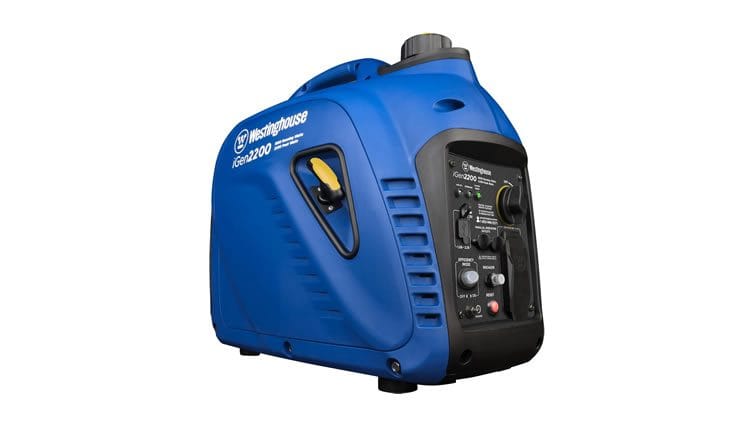
Fuel Types Compared
When it comes to picking the right portable generator for house use, understanding the different fuel types is essential. Each type has its own pros and cons, and the best choice depends on your specific needs and priorities. Let’s take a closer look at the most common fuel options and help you figure out which one powers up your lifestyle best.
Gasoline: The Go-To Option
Gasoline is probably the most popular choice for fueling portable generators. It’s easy to find, widely available, and gets the job done for most homeowners. You can swing by a nearby gas station and fill up your generator’s tank in no time. However, gasoline comes with a few drawbacks you’ll want to keep in mind.
For starters, gasoline doesn’t store well for long periods, so it’s not ideal for those who plan to stock up for emergencies. Plus, it’s flammable, which means you’ll need to store it carefully in a safe, ventilated area. Oh, and if you live in a cold climate, gasoline engines can sometimes struggle to start in freezing temperatures. Despite these quirks, gasoline remains a reliable and convenient option for short-term power needs.
Propane: The Clean and Convenient Choice
If you’re looking for a cleaner alternative, propane might be your best bet. Propane-powered generators are known for their efficiency and lower emissions, making them an eco-friendlier choice. They’re also super convenient, as propane doesn’t degrade over time like gasoline does. You can store it for months (or even years) without worrying about it going bad.
Another bonus? Propane generators tend to run quieter than their gasoline counterparts, so you won’t have to endure as much noise. The downside is that propane might not be as readily available as gasoline in some areas, and you’ll need to keep those propane tanks handy. But if you prioritize long-term storage and cleaner energy, propane could be the way to go.
Diesel: The Heavy-Duty Performer
Diesel-powered portable generators are the workhorses of the generator world. Known for their durability and fuel efficiency, diesel engines are built to handle heavy loads and extended use. If you need a portable generator for house use that can power multiple appliances for hours on end, diesel is a strong contender.
One of the biggest advantages of diesel is its energy efficiency—you get more power per gallon compared to gasoline. Diesel fuel is also less flammable, making it safer to store. On the flip side, diesel generators can be a bit louder, and the fuel may not be as easily available in every area. If reliability and performance are your top priorities, diesel won’t let you down.
Dual-Fuel Generators: The Best of Both Worlds
Why settle for one fuel type when you can have two? Dual-fuel portable generators offer the flexibility to switch between gasoline and propane. This feature is a game-changer, especially during emergencies when one fuel type might be harder to find.
With dual-fuel generators, you get the convenience of gasoline for short-term use and the long-term storage benefits of propane. It’s a versatile option that adapts to your needs, whether you’re powering up during a brief outage or prepping for extended blackouts. Just keep in mind that these generators tend to be slightly more expensive, but the added flexibility is often worth the investment.
Solar: The Green and Silent Alternative
For those who want to go all-in on eco-friendly energy, solar-powered generators are a fantastic option. They use energy from the sun, which means no fuel costs and zero emissions. Solar generators are quiet, lightweight, and perfect for powering small appliances or electronics.
However, they do have their limitations. Solar panels require sunlight to recharge, so cloudy days or nighttime use can be a challenge. Plus, solar generators typically can’t handle heavy-duty loads like their fuel-powered counterparts. Still, if you’re looking for a clean, silent, and renewable solution, solar is worth considering for your portable generator for house needs.
Choosing the Right Fuel for Your Needs
So, which fuel type is the best for you? It all boils down to your priorities. If you want ease of access, gasoline is a classic choice. For long-term storage and cleaner energy, propane is a strong contender. Diesel is the go-to for heavy-duty performance, while dual-fuel generators offer unmatched flexibility. And if you’re all about sustainability, solar might just win your heart.
Remember, there’s no one-size-fits-all solution. The best fuel type for your portable generator for house use depends on your lifestyle, power needs, and personal preferences. Take your time, weigh the pros and cons, and you’ll find a fuel type that keeps your home powered without breaking a sweat—or your budget.
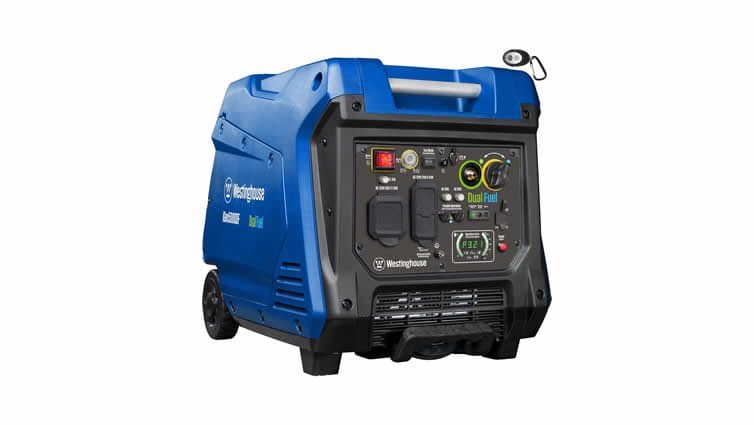
Evaluating Portability Features
When choosing a portable generator for house use, portability is more than just a buzzword—it’s a lifesaver. Whether you’re hauling your generator to the backyard during a blackout or moving it to storage when not in use, portability features can make your life a lot easier. But what makes a generator truly portable? Let’s break it down so you can pick a generator that’s as mobile as you need it to be.
Weight: Is It Light Enough to Move?
One of the first things to consider is the weight of the generator. Some portable generators are small and lightweight, perfect for quick movements, while others are bulkier and harder to handle. If you’re planning to move the generator frequently, opt for one that you can lift or wheel around without straining your back.
Keep in mind that higher wattage models tend to weigh more because of their larger engines and fuel tanks. So, if you’re eyeing a more powerful portable generator for house use, make sure you’re okay with the added heft. A little extra weight might be worth it for the extra power, but don’t forget to factor in how you’ll transport it.
Wheels: The Ultimate Convenience
Wheels are an absolute game-changer when it comes to portability. Let’s face it, even the lightest portable generators can feel heavy after a while, especially if you’re moving them across uneven terrain. Look for a generator that comes with built-in wheels, preferably ones that are sturdy and easy to roll.
Solid rubber or all-terrain wheels are great options, as they can handle grass, gravel, or pavement with ease. Some high-end models even feature locking wheels, so your generator won’t roll away when parked on a slope. If your generator doesn’t come with wheels, consider investing in a compatible wheel kit—it’s worth every penny for the convenience.
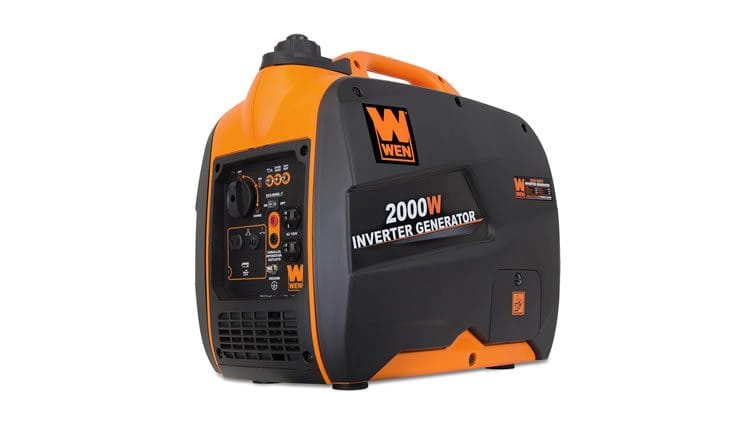
Handles: Grip Matters
Handles may seem like a small detail, but they play a big role in portability. A well-designed handle can make moving your generator a breeze, while a poorly designed one can leave you struggling. Telescoping handles, similar to the ones on suitcases, are incredibly convenient, especially for larger generators.
Dual handles are another great feature, allowing two people to share the load when lifting the generator. Ergonomic grips can also make a huge difference, reducing strain on your hands during transport. When evaluating a portable generator for house use, don’t overlook how comfortable and practical the handles are.
Compact Design: Storage Made Simple
Portability isn’t just about moving your generator; it’s also about storing it. A compact design makes it easier to tuck your generator away when not in use. Look for models with foldable handles or a shape that doesn’t take up too much space in your garage or shed.
Some portable generators come with built-in cable organizers or storage compartments for added convenience. These little extras can help keep your setup neat and tidy, saving you time and frustration during emergencies. After all, the last thing you want during a blackout is to be tripping over a bulky, unwieldy generator.
Noise Levels and Mobility
Believe it or not, portability isn’t just about physical movement—it’s also about how easily you can use your generator without disturbing others. Noise levels can impact where you place your generator and how often you feel comfortable moving it. A quieter generator is easier to use in residential areas without annoying your neighbors or family.
Some models even come with sound-dampening features, which are a bonus if you’re using your generator close to living spaces. Keep an eye on the decibel rating when comparing options; the lower, the better for overall portability and user-friendliness.
Balancing Portability and Power
It’s important to remember that portability often involves trade-offs. A generator that’s highly portable may offer less wattage, while a more powerful model might sacrifice some mobility. Think about how much power you really need and how often you’ll be moving your generator.
If portability is a top priority, lightweight and compact models with wheels and ergonomic handles are your best bet. For those who need more power but still want decent portability, dual handles and sturdy wheels can make even heavier generators manageable.
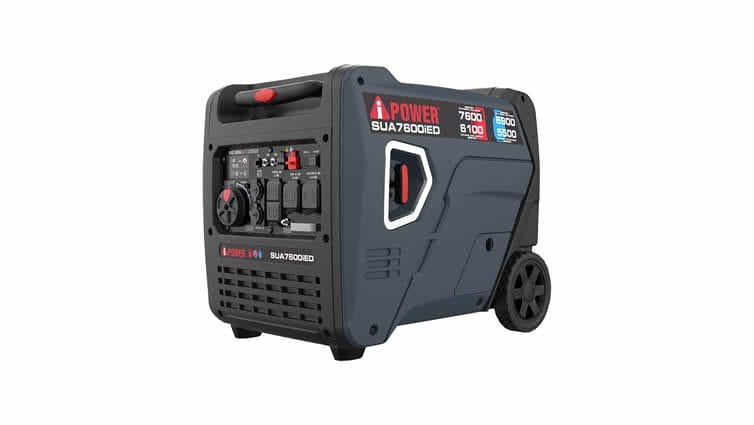
Final Thoughts on Portability
Evaluating portability features is all about making your generator work for you, not the other way around. Whether it’s lightweight construction, durable wheels, ergonomic handles, or a compact design, the right features can turn a cumbersome machine into a user-friendly tool.
When choosing your portable generator for house use, think about how and where you’ll be using it. The easier it is to move and store, the more you’ll appreciate your investment. After all, a generator that’s truly portable ensures you’ll be ready for anything life throws your way—without breaking a sweat.
Frequently Asked Questions (FAQ):
1. What size portable generator do I need to power my entire house?
The size depends on your home’s power demands. A small home may need a generator with 5,000–7,500 running watts, while larger homes may require 10,000 watts or more. Calculate wattage by adding up essential appliances and consider starting watts for high-draw items like refrigerators and HVAC systems.
2. Can a portable generator run a central air conditioner?
Yes, but only if the generator has a high enough starting watt capacity. Most central AC units need between 3,000 and 6,000 starting watts, so choose a generator accordingly. Consider using a soft start kit to reduce the surge required at startup.
3. What’s the difference between running watts and starting watts?
Starting watts are the extra wattage needed for a few seconds to start motor-driven appliances. Running watts are the continuous watts needed to keep them running. Always account for both when sizing your generator.
4. Which is better for home use: inverter generator or conventional generator?
Inverter generators offer cleaner energy, quieter operation, and better fuel efficiency, making them ideal for sensitive electronics. Conventional generators are usually more powerful and budget-friendly but louder and bulkier.
5. Can I plug my portable generator directly into a wall outlet?
No. This is extremely dangerous and illegal in most areas. It’s called backfeeding and can electrocute utility workers. Use a transfer switch or interlock kit installed by a licensed electrician.
6. How long can a portable generator run continuously?
It varies by model and fuel type. Most gas-powered generators run for 8–12 hours at 50% load. Dual-fuel and propane models may last longer. For continuous use, check the manufacturer’s duty cycle and allow cooldowns.
7. Is it safe to run a portable generator indoors or in the garage?
Absolutely not. Generators produce carbon monoxide, a deadly gas. Always run your generator outdoors, at least 20 feet from doors, windows, and vents, with the exhaust pointing away from the home.
8. What fuel type is best for home backup generators: gasoline, propane, or diesel?
Gasoline is easy to find but has a short shelf life.
Propane is clean and storable but requires tank access.
Diesel is efficient and safe to store, ideal for long-term heavy use.
Choose based on availability, budget, and outage duration.
9. How do I safely store fuel for my portable generator?
Use approved fuel containers, store in a cool and ventilated area, and add stabilizer for long-term gasoline storage. Keep propane tanks upright and check for leaks regularly. Rotate your fuel stock every 6–12 months.
10. Can I use a portable generator with solar panels or battery backups?
Yes. A hybrid setup with solar panels, a battery bank, and a generator provides maximum flexibility. The generator can recharge your batteries when solar isn’t enough, ensuring uninterrupted power.
11. What maintenance does a portable generator require?
Change the oil every 20–50 hours of use, check the air filter, clean spark plugs, and inspect for fuel or oil leaks. Run it monthly for 15–20 minutes to keep internal parts lubricated and the battery charged (if electric start).
12. Are dual-fuel generators worth the investment for home use?
Definitely. They offer fuel flexibility, letting you switch between gasoline and propane depending on availability. This versatility can be a lifesaver during emergencies.
13. How noisy are portable generators, and can I reduce the sound?
Noise levels range from 50 dB (quiet inverter models) to over 80 dB (conventional models). Reduce noise with generator enclosures, soundproof barriers, or by placing the unit further from living areas.
14. Do I need a transfer switch for my portable generator at home?
Yes, especially if you want to power hardwired appliances like a furnace or well pump. A transfer switch ensures safe operation, prevents backfeeding, and allows seamless switching between utility and generator power.
15. What are the top safety tips when using a portable generator for my house?
Never operate indoors or in enclosed spaces
Use carbon monoxide detectors in your home
Let the engine cool before refueling
Keep the generator dry and avoid using in rain
Follow the manufacturer’s instructions precisely
